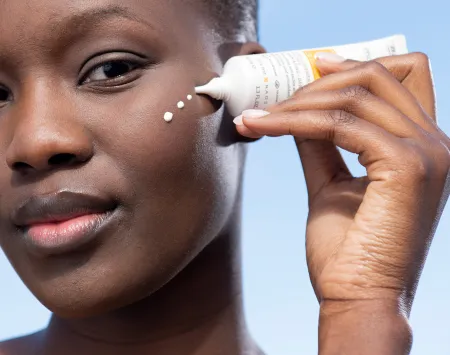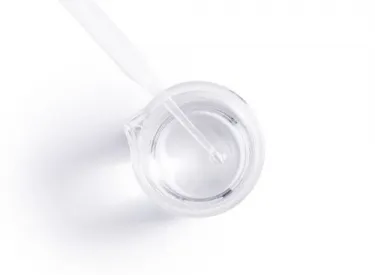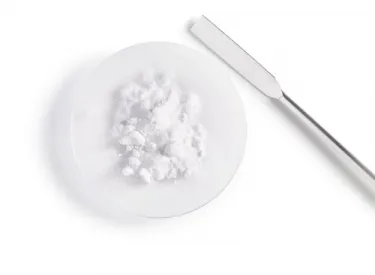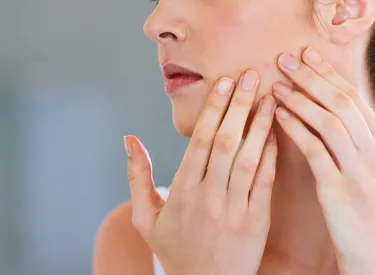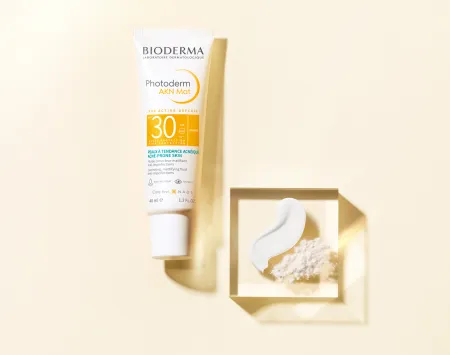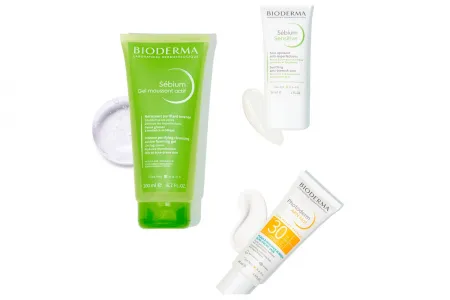Some people believe that the heat of the sun will improve acne-prone skin by drying out the oil and reducing pimples. But contrary to popular thinking, the sun is far from a friend for oily skin.
During sun exposure, UV rays do help to dry up blemishes. However, soon after exposure, they induce excess sebum production, causing the skin barrier to thicken and clogging the pores, leading to spots and blackheads. The sebum produced remains under the skin and bacteria multiplies. A few days later, an acne outbreak is very likely to occur. An acne outbreak after sun exposure is called the rebound effect.
As the rebound effect is not instantly visible on acne-prone skin, it is often misunderstood or underestimated. Every summer, dermatologists warn their patients of the risks of sun exposure for oily skin. To avoid outbreaks, make sure you are protected from the sun with an adapted sunscreen for oily or acne-prone skin.
Additionally, the sun can intensify acne scars and darken spots, as UV rays are responsible for hyperpigmentation.
If you are using medication or topical treatments against acne, your skin is sensitised and will burn faster and may react more strongly to the sunlight. In this case, it is extremely important to protect your face every day, as the UV rays will stress your sensitised skin and can provoke pimples. Don’t forget that you are exposed to UV rays all year round, not only when the weather is sunny.



